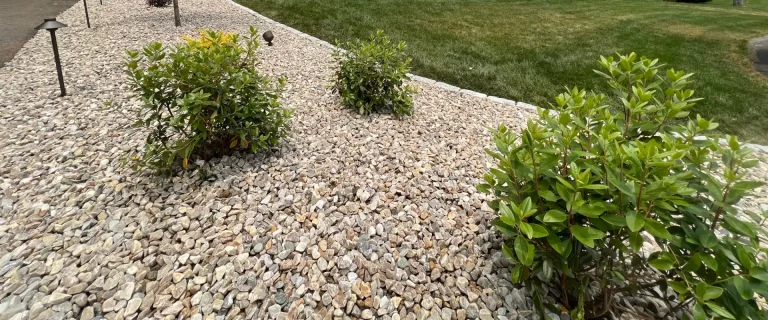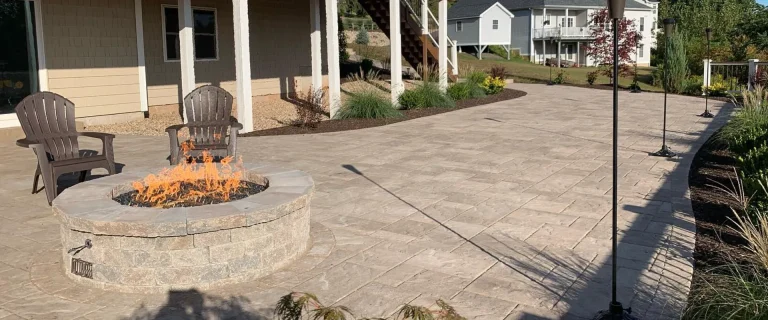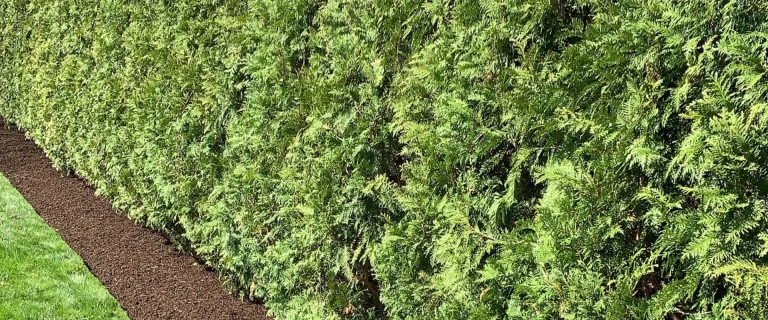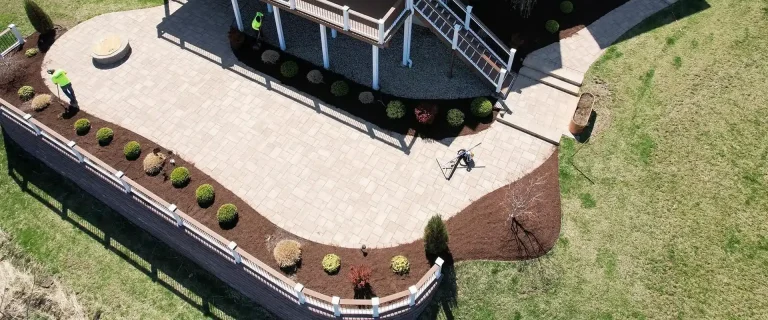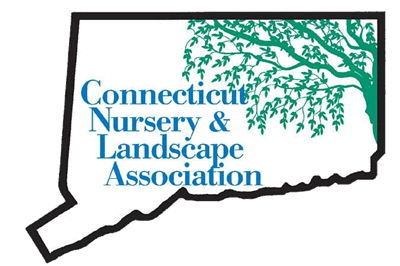How Does Landscaping Increase Home Value?
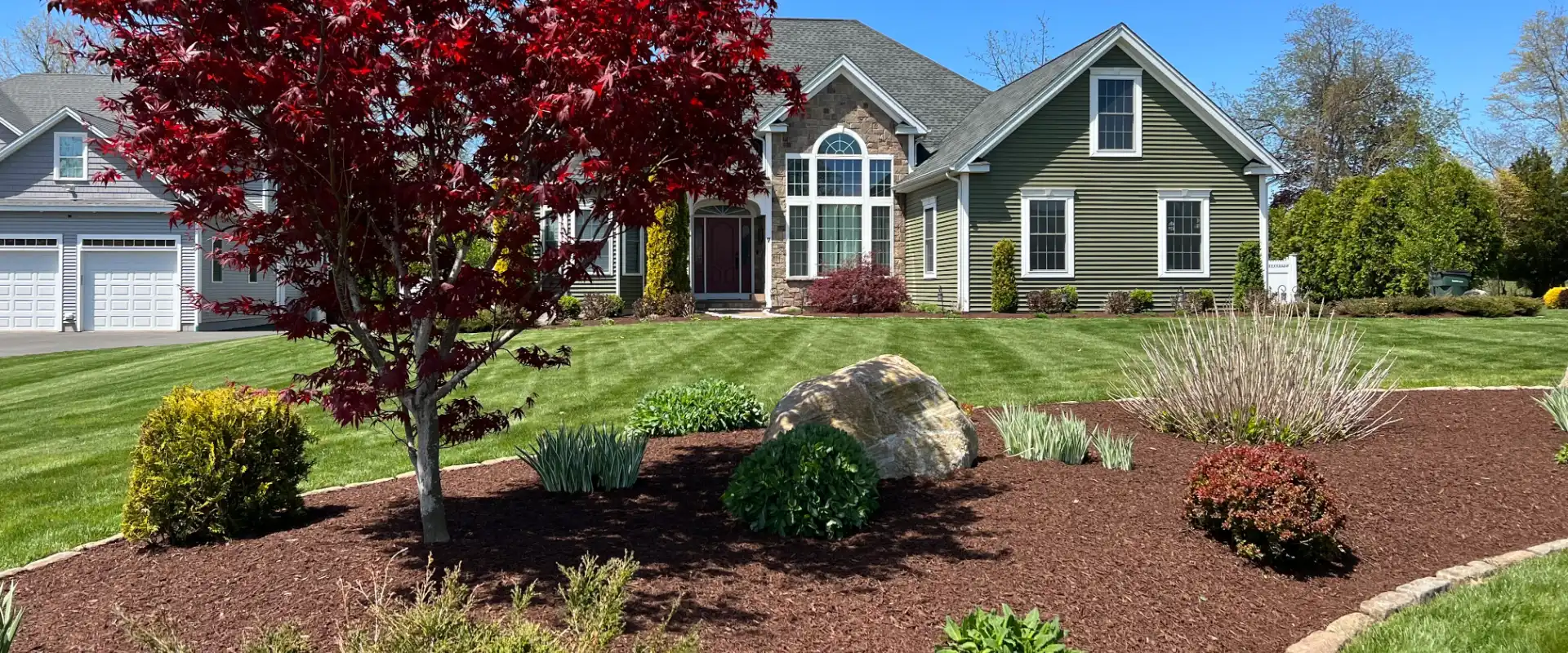
A beautiful home can only be improved by beautiful landscaping. In fact, it may not matter how appealing a structure is if it is not accompanied by a well-designed and maintained outdoor area. Landscaping can also bring beauty to otherwise boring or less appealing commercial structures.
The impact that landscaping has on the overall appeal to the property is quite obvious. However, what you might not know is that good landscaping can actually drastically increase home value. This can be particularly important if you are trying to sell or lease out a property. So, how exactly does landscaping have this positive impact? Read on to find out the answer to the question: “How does landscaping increase home value?”
What is Landscaping?
Also known as landscape architecture, landscaping involves the design of outdoor areas and the execution that brings those designs to life. Landscapers focus on achieving both aesthetic and environmental goals. In addition to beautifying a space, landscapers attempt to ensure sustainability by removing air and land pollutants. Landscapers can even help to prevent erosion in an outdoor space with things like retaining walls and avoid damage to your foundation with landscape drainage techinques.
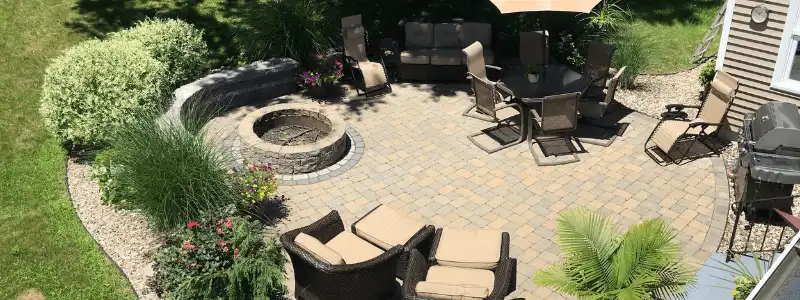
Types of Landscaping
There are many different types of and elements within landscaping and hardscaping. These can include:
- Lawn installation and maintenance
- Garden installation
- Tree/shrub planting
- Walkway installation
- Patio installation
…and much more!
What is Softscaping?
Softscape involves working with living materials. This includes trees, shrubs, perennial and annual flowers, ornamental grasses, succulents, vegetables, herbs, and topiary.
The issue with landscaping in the hands of an eager do-it-yourselfer is that the bed and yards become overcrowded, overgrown, or simply not conducive to the climate. Sometimes, DIY-ers will use plants that won’t thrive in their climate, or they’ll plant combinations of species that will not grow well together.
That is why it is important that one hires experienced professionals to handle softscaping.
What is Hardscaping?
As the name suggests, hardscaping refers to the “hard” but movable parts of landscaping. These include concrete, gravel, bricks, stone, and paving materials. Hardscape cannot be easily moved or changed. It is solid and is built to last.
Types of Hardscaping
Hardscaping includes the construction or installation of:
- Retaining walls
- Terraces
- Driveways
- Walkways
- Decks
- Fire pits
- Ponds
- Patios
- and more.
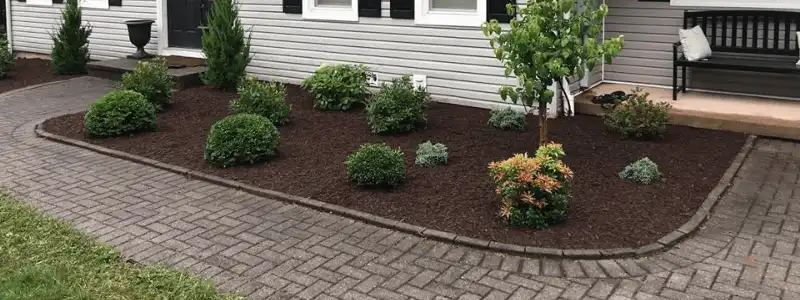
Hardscape projects can be very extensive and labor-intensive. Special materials and equipment are often required. While some of these may be undertaken by proficient DIY-ers, many of these are better completed by experienced landscape professionals.
How Does Landscaping Increase Home Value?
So, exactly how does landscaping increase home value? There are a lot of elements to this answer. Curb appeal is important. It is the prospective homeowner’s first impression of your house. Like first impressions in a job interview, what the buyers see when they pull up in front of your home can determine whether they will look further.
Residential landscaping can add between $16,000 and $300,000 to the resale value of your home.
SFGATE estimates that adding curb appeal to your house adds five to ten percent to the appraised value.
Other Landscaping Benefits
Landscaping isn’t just about increasing the resale value of your home. Landscaping and maintenance can help eliminate noxious weeds, protect your property from erosion, and create a lovely space for homeowners to enjoy. It can create pleasant, relaxing areas in your yard where you can socialize, entertain, and relieve stress. Thanks to innovative landscaping, even homeowners with small yards can maximize their limited space.
Pollution Management
Landscaping helps combat toxicity and other environmental issues. Air pollution is a primary concern for those living in urban and suburban areas especially. Landscaping can help to clear the immediate environment of toxins. Green plants inside and outside your home help control carbon dioxide levels and absorb toxic materials. This helps to maintain a healthy living space.
Ecology Improvement
While planting green plants beautifies your home, gardens can also assist in climate and ecology maintenance and improvement.
By planting the right plants, landscape architects can assist in rejuvenating the soil. It is important, however, that the right plants are installed so as to not to disturb the natural balance and ecology of the area.
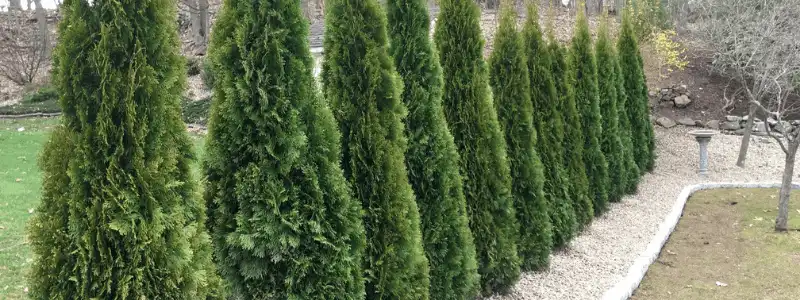
Rainwater Harvesting
Rainwater harvesting is a sustainable solution to water scarcity. Rainwater harvesting is the process of collecting and storing rainwater, preventing the runoff of stormwater. Your landscaping and hardscaping design can make use of natural water resources.
Constant Innovation
Landscape specialists use ecology, hydrology, horticulture, geology, and architectural design technology during the entire process. With their advanced skills, they can create a sustainable green space. Additionally, the design aesthetics can create an environment that boosts well-being for those who enjoy it.
If the natural environment presents challenges, innovative landscape professionals use creative ideas like vertical gardens, terraces, and wall gardens. The outcome is an aesthetically pleasing effect and a healthier environment.
Combating Climate Issues
Climate change is a major concern in the modern world. Urbanization, deforestation, use of chemicals, and excessive use of concrete have escalated these worries. The result is the depletion of air quality and an increase in temperature. When done properly and in a sustainable and eco-friendly way, landscape architecture can decelerate the impact of climate change. Good examples of this are rooftop gardens and pocket parks.
Human Benefits
There are many psycho-social benefits of landscaping. Communing with nature can improve our mental abilities. Relaxing outdoor spaces can help to calm our minds.
Working to improve and maintain landscaping, by gardening, planting, weeding, or just sitting among plants has proven to have a calming, therapeutic effect on the mind.
How Much Does Landscaping Cost?
The cost of landscaping varies widely. Cost factors include the present condition of the property, the extent of the work, and the materials required. Prices will also vary from one landscaping company to another.
HomeStars surveyed homeowners who spent between $1,800 and $7,000 on landscaping projects. For a complete overhaul of a large property’s outdoor space, one can expect to pay over $20,000. Again, the cost completely depends on a variety of factors.
How to Keep Landscaping Costs Low
Want to improve your outdoor space but don’t want to break the bank? Minor cosmetic changes can give your home a surprising facelift. This could include adding flower baskets at the front door, planting annual flowers along a walkway, or installing a firepit by your patio.
Other subtle but worthwhile changes include mulching flowerbeds, trimming shrubs, adding a simple stone walkway, or repaving the driveway.
The exterior of your front entrance is a vital focal point. There are some ways to quickly spruce up this space. Apply a new coat of eye-catching paint. Install a decorative window above or to the side of your door. Add a new door knocker, a brass kick plate, or a new doorknob.
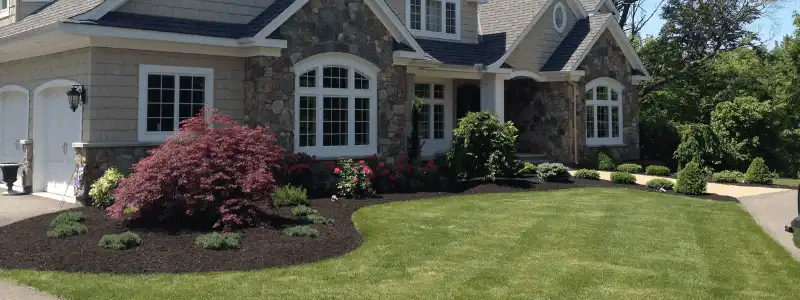
How Can Scenic Landscaping Help?
Scenic Landscaping is a landscaping company in Rocky Hill, Connecticut that you can count on. With over a decade of successful landscape experience and maintenance experience in the Greater Hartford area, Scenic Landscaping has delighted its valued customers.
Scenic Landscaping professionals are proud to provide softscape and hardscape services to both residential and commercial properties. No job is too large or small for the company’s competent, experienced technicians. Scenic Landscaping has a reputation for providing quality results at a price unmatched by the competition.
We live in an era when climate, urbanization, and shrinking available land pose challenges. However, with smart planning, even the smallest yard can incorporate areas of hardscape and softscape to produce an aesthetically pleasing and eco-friendly green space.
To learn more about how Scenic Landscaping can help transform your outdoor spaces, contact us today!

